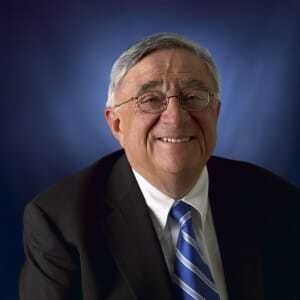John Zuccotti, global chairman of Brookfield Asset Management who notably served as New York’s deputy mayor for economic development during the city’s fiscal crisis of the mid-1970s, passed away on November 19 in Brooklyn. He was 78.
Known as a wise, even-tempered, yet powerful force within New York City’s political, civic, and business circles, Zuccotti spent the early part of his career in public service, serving first as the chairman of the New York City Planning Commission from 1973 until 1975, and then as deputy mayor under Mayor Abraham Beame from 1975 to 1977. Zuccotti is widely credited for being a steadying force amid the turbulence of New York’s near-bankruptcy under Beame.
“He led the city out of the wilderness of fiscal despair and was one of the leading architects behind getting the city back on a stable financial basis,” said Carl Weisbrod, chairman of the New York City Planning Commission. “Forty years later, we see evidence of his stewardship that has served as the foundation for the city’s renaissance since then.”
ULI New York Chairman Robert C. Lieber said he always shared a kinship with Zuccotti since both served as deputy mayors of economic development. Lieber got to know Zuccotti when the former worked in investment banking and the latter was chairman of Brookfield and while both served on the board of the Lower Manhattan Development Corporation, responsible for the rebuilding of the financial district and World Trade Center site after the 9/11 terrorist attacks.
“John was always a strong and calming influence on any conversation that came up,” said Lieber, executive managing director of Island Capital. “He was the strong, silent type—that was my perception of him.”
Born in Greenwich Village in 1937 to Italian immigrant parents, John Eugene Zuccotti graduated from Princeton University and Yale Law School before serving in the U.S. Army Reserves. He worked as an urban planner and for the U.S. Department of Housing and Urban Development before being appointed to the planning commission.
His father, Angelo, was the maître d’hôtel of the famous El Morocco nightclub where Hollywood stars would mingle and vie to be seen. Weisbrod imagines that Zuccotti may have learned his deft diplomatic skills watching his father negotiate the whims and personalities of celebrities.
“John had a good understanding of everyone’s point of view and an appreciation where others were coming from,” Weisbrod said. “He had a gravitas and calmness to him that always stood him in good stead in situations others might have found to be stressful.”
After Beame was defeated by Mayor Ed Koch in 1977, Zuccotti returned to private practice and served in other civic roles as well, including labor arbiter for the Metropolitan Transportation Authority in the 1980s. In 1990, he became president of the U.S. office of Olympia & York, a Canadian real estate firm with significant holdings in Manhattan, including the World Financial Center, now known as Brookfield Place.
At the time, the entire country and New York in particular were in an economic recession. Zuccotti played yet another pivotal role during a moment of crisis—but this time, as a private sector executive. Olympia & York also was teetering on the edge of bankruptcy, yet Zuccotti was determined to not let the same fate befall the U.S. office. The demise of Olympia & York, the single largest commercial property owner in New York, would have had a devastating impact. Zuccotti was determined to keep the firm out of bankruptcy “to ensure that Olympia & York would continue to pay its share of commercial real estate taxes and keep the city afloat,” Weisbrod said. The parent company eventually filed for bankruptcy, and another Canadian firm, Brookfield Asset Management, took control of its assets.
After assuming the chairmanship of Brookfield, Zuccotti played a major role in another critical chapter in the city’s history—the remaking and reinvention of lower Manhattan after the 9/11 terrorist attacks.
“He epitomized what a role model can be in terms of his contributions through the public and private sector,” Lieber said. “He not only had the brain power and depth of experience in the private sector, but a willingness to invest his time and skills in public service as well. He truly wanted to make the city great for everybody.”




